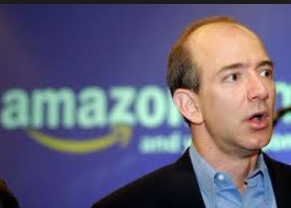Peter Drucker once said: Within five years, if you’re in the same business you are in now, you’re going to be out of business. That is a pretty harsh statement from Peter Drucker, isn’t it? Jeff Bezos would certainly agree, though … just look at Amazon over the past decade-plus.
He has established Amazon as a leader with innovation in business lessons. And he certainly knows much about innovative growth opportunities. No question. But most businesses would have a hard time agreeing, in our opinion.
We tend to think of innovation as an individual effort. It’s much easier to visualize someone like Thomas Edison, Steve Jobs, or Elon Musk, in a flash of inspiration, coming up with a brilliant idea than it is to imagine a vast, collective effort. Yet make no mistake. Innovation is a team sport and great innovators are great collaborators.
This year marks the 50th anniversary of the Apollo mission which put a man on the moon, one of the vastest collective efforts in history. It involved 400,000 scientists, engineers, and technicians working across government, academia, and private industry. It was, above all, a public effort that mobilized resources across all facets of society.
Today, the moonshot seems like a relic from another era, when we expected, and often welcomed, government to play a bigger role in our lives. Yet the challenges we face now, such as climate change, energy, manufacturing, and healthcare are, in many ways, far more complex than going to the moon and government needs to play a role in solving them.

Check out our thoughts on building innovation.
I like to read … why? To be entertained, to learn new things, and to stimulate thinking. Jeff Bezos is a favorite author of mine, especially when the articles deal with business innovators and leadership. I have a set of five authors that I selected over a decade ago to be my silent mentors … they mentor through their writings and presentations. Jeff Bezos is one of those five guides.
Yes … all five do stimulate a lot of thinking and learning, but they all have a great knack for entertaining while they teach and silently mentor. They also share many other common attributes that make them such successful mentors for me.
It probably is not necessary to tell you a little about Jeff Bezos. He gained a solid reputation for uncanny business acumen, unique innovation strategies, and substantial risk-taking during his almost 20 years as Amazon’s CEO. He remains a highly regarded figure in business circles due to his innovative management strategies, leadership style, and of course his success.
In this blog, we have selected eight favorite topics of Bezos and used quotations and a compendium of lessons from many of his writings, articles, and presentations to focus on what he teaches us on each. We use these thoughts regularly in our work with client teams.
Innovation in business … customer-centric focus
Focusing on the customer makes a company more resilient.
At Amazon, there is a standard line of thinking: Start with the customer and work backward.
Bezos has mentioned many times that you focus on customer needs and then work backward from there.
When you work backward, you start with the client and their needs and problems. This is the opposite of what some companies do, which is: they think up ideas, build a product, and then see if customers like it.
Develop a vision
Vision. We are always fascinated by this skill. And it is a great skill to have in our view. Does it mean you see everything? Certainly not. It does say that you have the ability to see what many cannot. And then act on these. Vision doesn’t count without action. And not without managing innovation.
For years, I’ve been fascinated by Jeff Bezos’ vision. We write a lot about him and Amazon. They are a great company to follow because of the Bezos vision. And his ability to make good bets on his vision. While everything may seem rosy at Amazon these days, for years, it was incredible to see just how much criticism there was towards some of Bezos’ decisions.
That idea of staying the course for the long term has been the key to Bezos’s success. Vision requires the long term. As does innovation.
We are stubborn on vision. We are flexible on details.
Innovation in business examples … company brand
A brand for a company is like a reputation for a person. You can earn reputation by trying to do hard things well.
Amazon’s brand reflects Bezos’s personality, beliefs, and thinking. And the culture continues to grow and develop.
Benefits of innovation in business
Amazon, we believe, has one of the very best innovative cultures in an industry built on constant innovation and change. Why may you ask?
We believe there several good reasons. First, as one of the creators of the e-commerce industry, he well knows the industry is in its infancy and is built on a foundation of new technology and constant introduction of new ways of doing things … he knows their future is based on those trends.
Business is all about capturing intellect from every person. The way to engender enthusiasm it to allow employees far more freedom and far more responsibility.
One of Bezos’s primary beliefs is that me-too companies have not done that well over time. So you need to invent and be willing to be misunderstood. All disrupters are inventors. And me-too companies are not inventors.

Internet technology
An important driver of Bezos’s innovative decision making is that the web in general and Amazon, in particular, are still in chapter one.
The operative assumption today is that someone, somewhere, has a better idea; and the operative compulsion is to find out who has that better idea, learn it, and put it into action – fast.
Company evolution
Change, BEFORE you have to. Change is a big part of the reality in business. New ideas are the lifeblood of business. And the basis for creative change.
Experimentation
Bezos knows that to do new things well, you must be good at trying new ideas in many areas as experiments. These experiments, he realizes, will not all work as planned, and a high percentage will fail. He knows and accepts this without worry.
I love this quote from Bezos:
If you double the number of experiments you do per year, you’re going to double your inventiveness.
If you ask most CEOs, they’ll tell you that experimentation is imperative for their business. It’s how innovations are born and how they stay competitive in the market. Automotive companies have concept cars; food companies experiment with new foods and flavors; retail companies experiment with the placement of products and store atmosphere; drug companies are built on experimentation; tech companies have “labs” like Google Labs; and many high performing companies, like Google, allow their employees to experiment. Even sports teams experiment with new plays and players. Experimentation is everywhere and is always happening.
At Amazon, experimentation, and willingness to invent have always been a part of the culture. It’s not secondary or something that has to be done because everyone else does it.
Business innovation … little fear of failure
We were willing to go down a bunch of dark passageways, and occasionally we find something that actually works.
So, his mind never lets him get in a place where he thinks they can’t afford to take these bets because the bad case never seems that bad. And to have that point of view requires a corporate culture that does a few things. Very few business leaders think that way or take that point of view.
And what does Jeff Bezos have to show for their patience and persistence? Simply one of the most dominant, enduring, and valuable enterprises that the Internet boom has yet produced.
The bottom line
The truth is that there is no one truth to innovation. Not IBM, Google nor Amazon has hit on the “right” way to innovate, but they have found the right way for them. It is how those practices have become so deeply embedded into the fabric of their organizations over time that makes the difference.
If you want to innovate, you need to find your own path.
To find a real business success story, you have to try many avenues … and experience some failures along the way. Bezos knows this lesson well, doesn’t he?


